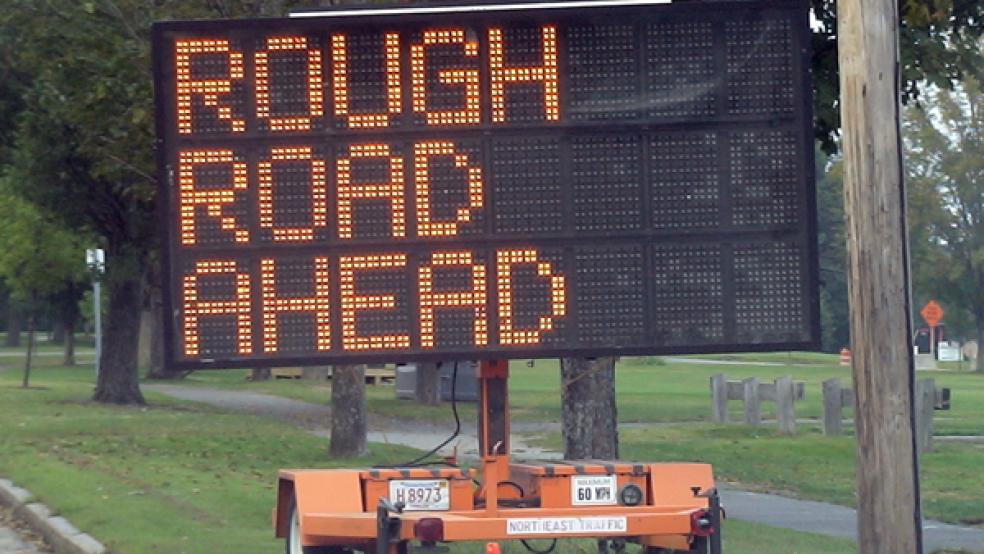In a move fueled mostly by hope, the Obama administration formally submitted a bill on Monday to reauthorize a long-term highway and transportation program. It includes $478 billion over the next six years to underwrite state transportation programs and supplement the quickly depleting federal Highway Trust Fund.
A May 31 deadline is hanging over Congress and the administration to pass new legislation to fund the restoration of the nation’s battered roads and bridges and launch other job-generating infrastructure projects. Both the House and the Senate are both working on their own transportation bills; the three bills will compete.
Related: How Tax Reform Could Help Save U.S. Infrastructure
Congress and the White House have kicked the can down the road on this issue before – and they may have to settle for another short-term patch to avert a U.S. transportation crisis this summer.
The Obama bill reflects the mindset of many congressional leaders on both sides that strict reliance on the federal gas tax and periodic budgetary sleight-of-hand to keep the federal highway program afloat no longer is an option. They believe the best funding solution is to restructure the corporate tax system to generate fresh revenues.
Last summer, when the Highway Trust Fund faced insolvency because of lagging federal gas tax revenues, Congress stepped in at the last minute and shifted $10.8 billion from the general fund to keep it afloat. The trust fund is financed strictly with revenues from an 18.4-cents per gallon tax on gasoline that has not been raised in more than 20 years and is not adjusted for inflation.
The bill Obama sent yesterday – while Congress is out on recess – would supplement the trust fund and generate additional money for a long-term transportation program. It would impose a 14 percent tax on an estimated $2 billion that U.S. corporations keep offshore to avoid having to pay higher corporate tax rates.
Related: Governors Join Obama in Infrastructure Spending Plea
The administration would also increase the government’s current $50 billion a year level of spending on transportation and infrastructure needs by almost $25 billion.
House Ways and Means Committee Chair Paul Ryan (R-WI) has promised to come up with a solution to the highway spending dilemma as part of overhauling the corporate tax structure. Rep. John Delaney (D-MD) has proposed an even stronger and more lucrative tax repatriation strategy than the one Obama is recommending.
Many state officials, business and labor groups as well as highway and bridge safety advocates say the simplest, most effective way to fix the problem before temporary spending runs out this spring is to raise the gas tax. A recent study by the conservative-leaning Tax Foundation challenges corporate tax reform approaches as misguided. It makes a strong case for simply raising the federal gas tax to 28 cents a gallon and annually adjusting it for inflation.
Related: Why Gas Prices Are Set to Drop (Again)
At a time when gas prices are low, advocates say it would be foolish for Congress to pass up the opportunity for raising the gas tax rates. However, the Obama administration and congressional leaders, including House Speaker John Boehner (R-OH) and Senate Majority Leader Mitch McConnell (R-KY), have been cool to the idea of raising the tax and are exploring other options.
Moreover, research suggests it would be a bad bet to count on the gas tax for funding highway programs in perpetuity. That’s in light of changing driving habits, increased fuel efficiency in cars, light trucks and SUVs, and a steep decline in gasoline consumption in recent years.
A recent paper by Michael Sivak, a professor at the University of Michigan’s Transportation Research Institute, found gasoline consumption fell by 11 percent over the past decade even as the U.S. population grew at an 8 percent clip.
Related: $478B Infrastructure Bill Blocked by Senate GOP
Average fuel consumption by American drivers is at its lowest level in at least 30 years, according to Sivak’s findings. In a follow-up to reports issued the past two years on gasoline consumption from 1984 to 2013, he found that gallons of gasoline consumed per person, vehicle and households are now below 1984 levels.
“Despite population growth of 8 percent, the absolute amount of fuel consumed by light-duty vehicles decreased by 11 percent during the period 2004—the year of maximum consumption—through 2013,” Sivak wrote.
Top Reads from The Fiscal Times:





